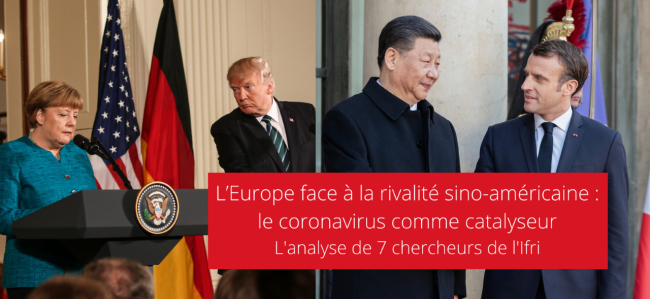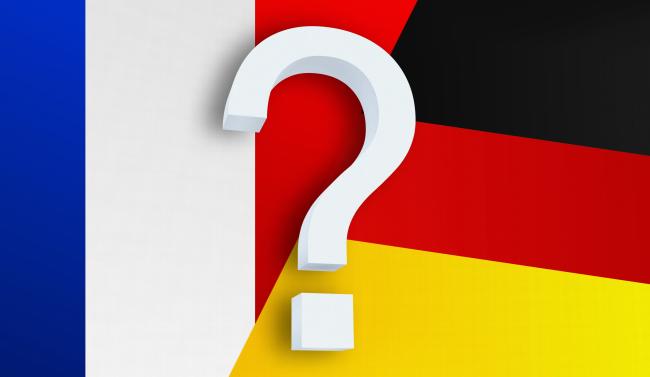
Practical information
Discussion with Birgit Sippel, MEP, and Éric-André Martin, Secretary General of the Study Committee on Franco-German Relations (Cerfa) at the French Institute of International Relations - Ifri.
Brief interviews on local situations
Italy: Eugenio Riversi, Art Historian, University of Bonn
France: Landry Charrier, Attaché for University Cooperation at the French Embassy
Moderator: Gwendolin Jungblut, Agentur für Wahlen, Führung, Strategie (Elections Agency, Leadership, Strategy)

The coronavirus crisis is currently hitting all European countries hard, but its effects will vary. The sole action of individual states to find their own solutions seems to contradict the founding idea of European solidarity. There are different approaches in the search for a common solution: Some countries called for joint bonds in the form of so-called “corona bonds” — while other countries wanted to prevent joint liability at all costs. The EU finance ministers have now jointly agreed on an aid package of 500 billion euros.
The following questions will be addressed in LiveChat: Will the aid package be enough to tackle the economic crisis collectively? What are the advantages or disadvantages of this solution — and how does it differ from the controversial “corona bonds” approach? What are the dangers of the lack of cohesion in the international community, which has become apparent during the crisis? What is meant by the proposed “Recovery Fund”?
PLEASE NOTE: This seminar will be held in German via Zoom.
You can register via the following link: https://www.fes.de/veranstaltungen/?Veranummer=247656
In the morning of May 4th, you will receive a confirmation email containing the link to access the Zoom seminar.
Joint event of the Institut français of Germany and the Friedrich-Ebert-Stiftung
Speakers
Find out more
L'Europe face à la rivalité sino-américaine : le coronavirus comme catalyseur
La pandémie de coronavirus agit comme un double catalyseur. De manière visible, elle teste la résilience de l’Union européenne (UE) et de ses membres, tiraillés entre la Chine d’où est parti le virus et les États-Unis où il arrive.
Coronavirus: Franco-German solidarity put to the test
While the coronavirus health crisis is currently intensifying in Europe, it does not seem to be affecting France and Germany at the same pace or with the same intensity. The crisis is putting both countries' respective hospital systems to the test in different ways. France and Germany's economies are being mobilized, and social cohesion is enhanced. The crisis also impacting Franco-German and European solidarity.
Related Subjects
Other events

From Ambition to Action: Exploring Technological Partnerships with India
The 16th EU-India Summit, held on January 27th in New Delhi with European leaders António Costa, Ursula von der Leyen, and Prime Minister Narendra Modi, marks a significant milestone in deepening EU-India relations. At the same time, official bilateral visits from EU member states are on the rise, including that of the French President, who visited India in February to participate in the Artificial Intelligence Summit. As India asserts its technological ambitions and seeks to reduce its dependence on China, Europe is stepping up its efforts to diversify its strategic partnerships.

The Enlargement of the European Union: A Strategic Choice? France, the Western Balkans and the EU in an Uncertain Geopolitical Context
Russia’s war against Ukraine has brought the enlargement of the European Union back to the centre of European strategic debates. In this context, the Western Balkans have regained heightened visibility in discussions on the continent’s security, at a time when the international environment is marked by a growing number of destabilising factors.










